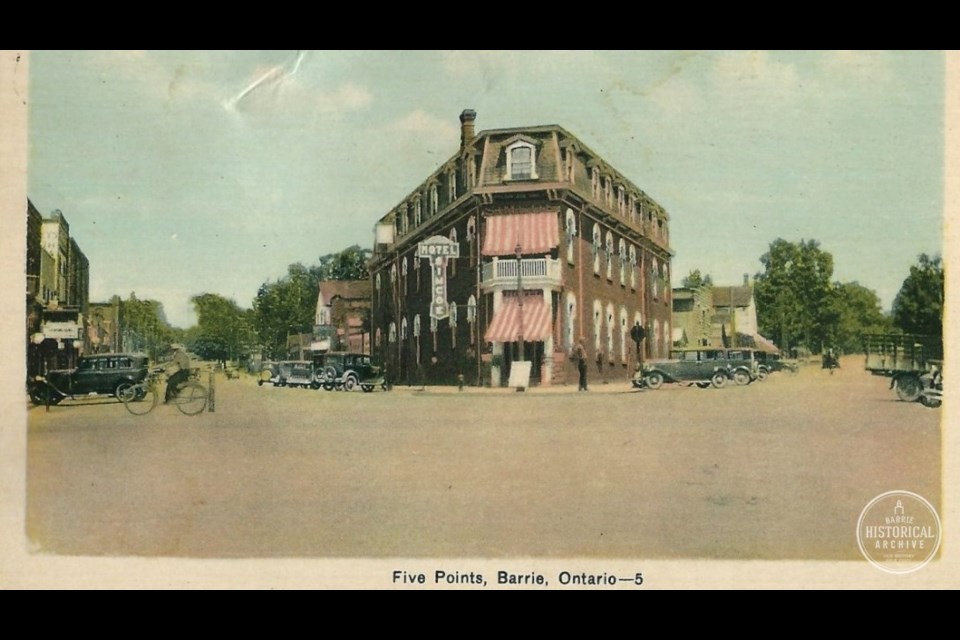Editor's note: The following is the second instalment of a two-part series. To read part one, click here.
John Allan Thompson died in Barrie in 1956 after living 50 years in Oro Township and 41 years in this community. He was 91 years old at the time of his death and one of the last remaining local descendants of African slaves who had once farmed in that area.
John Thompson was a retired CNR worker, but he was best remembered as a fiery street preacher of the Pentecostal faith, who drew crowds from Barrie to Toronto and everywhere in between.
His preaching got him into trouble on plenty of occasions, but that did not stop him. By 1927, John Thompson was regularly hosting sermons at Five Points as he had seen that the Salvation Army often shared their message there.
Thompson was quite an enthusiastic preacher and claimed to possess the divine gift of healing. He said that people would bring their sick to him after Toronto doctors and hospitals had given up.
Thompson started to get into hot water when he began demanding that the Salvation Army move along and allow he and his followers to have their turn. Crowds of the faithful and curious spectators swelled in numbers and became problematic.
Police Chief Stewart had immense respect for Thompson, whom he knew to be a hard-working Christian man, and so gave him a quiet warning only on July 9 after the most recent meeting had caused traffic chaos.
The following week, Thompson was once again holding church in the middle of the street. Stewart paid a visit to Thompson’s house and left a message with his daughter. Stewart requested that her father come in to the police station for a little chat.
He never came.
This went on until July 30 when an extra-large rally got way out of hand. The chief and two constables attended the scene to break up the meeting and move the crowd along with minimal fuss.
That is not what happened.
Thompson refused to leave and Chief Stewart decided that enough was enough. Thompson said, “I will continue to hold forth here,” after which he began to sing a hymn. With that, the chief took hold of Thompson’s shoulders, then caught him around the waist. Thompson wound his legs around the chief’s legs in an attempt to throw him off balance. The melee began!
Next, Thompson swung around and caught the chief by the throat with both hands. Chief Stewart was freed by a constable and quickly called out to the crowd for assistance. A corporal from Camp Borden, trained in jiu-jitsu, came to Stewart’s aid, which provoked two of Thompson’s followers to get into the fray.
Eventually, all three were subdued, loaded into cars, and taken to the station.
When Thompson appeared in court, it was standing-room only. With no extra seats available, spectators perched on window ledges inside the courtroom while others peered through the glass from outside to get a glimpse of the proceedings.
It was reported that most of Barrie’s Black community attended the trial in its entirety.
Even presiding judge, Magistrate Jeffs, was fascinated by all the attention. The case lasted for four hours and caused 25 pages of notes to be written by Jeffs. He commented that, in a Toronto courtroom, this case would have been disposed of in under 15 minutes, with only a short note required.
The Thompson trial did not disappoint.
The cagey banter of Thompson and his circuitous answers entertained the spectators and vexed the prosecution.
Magistrate Jeffs had to call the court to order on several occasions and threatened to clear the courtroom.
Thompson would not be moved nor give many straight answers in his testimony. His judge was a higher judge he said and he answered only to God.
In the end, Thompson was found guilty of both obstructing traffic and for the assault on Police Chief Stewart.
He was fined $16.
Each week, the Barrie Historical Archive provides BarrieToday



